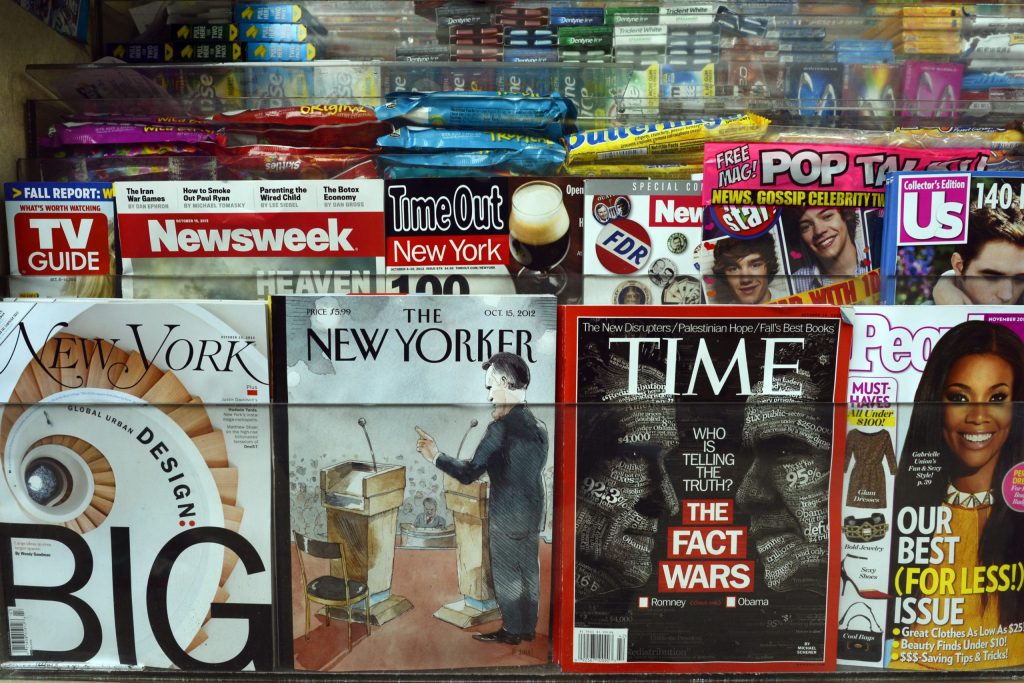You can call for killing foreigners on Twitter and Facebook, as long as you do it in the gentle language of elite respectability. War is OK — especially if it’s a war to liberate somebody somewhere, even if that liberation in practice means ‘liberating’ the poor suckers from their earthly existence or the burden of having living families. Bombs are a benediction we bestow upon those we love.
What you cannot say on social media, safe space that it is, is how much you hate the politicians and propagandists who demand this kindly slaughter. When Caitlin Johnstone, a fractious left-wing critic of U.S. foreign policy, voiced her opinion that ‘the world will be improved’ once John McCain ‘finally dies,’ she was suspended from Twitter. Peter van Buren, a former Foreign Service officer who has written much about the lies involved in the Iraq War and the subsequent occupation of that country (including his role in it), was banned forever after he was reported for making a reference to zombies (or in some accounts, ‘ a MAGA guy’) eating a hostile interlocutor’s face.
Those are nasty things to write. But if people are only allowed to write nice things on the dominant media platforms of the early 21st century, we will be a nation without a place for an open and honest airing deeply different points of view — different enough that people care to offend. There is a reason that anti-establishment politics tends to attract hot tempers and cranky personalities: the misfits are often the only ones who have so little at stake in the power structure that they can afford to say — however crudely — what many more cautious souls actually believe.
Just consider how opinion was policed in the run-up to the Iraq War. Many sensible Republicans knew the invasion was a mistake; they privately told me so at the time. But they had jobs they had to keep and families to support; they couldn’t make enemies of President Bush (or, for the other side, of a Democratic establishment terrified of seeming unpatriotic or less unenthusiastic than the neocons about liberal imperialism). David Frum, today a hero of the anti-Trump ‘resistance,’ had an easy time focusing on cantankerous figures in ‘Unpatriotic Conservatives,’ his attack on the antiwar right. The least polite and cautious paleoconservatives and libertarians were the ones most likely to speak out. Shut them up, and the war could proceed without pricking the conservative conscience.
The ‘liberal’ media plays its part in flattening the landscape of American opinion. Prestige media views balance as a matter of representing two uniform points of view, one labeled both ‘Republican’ and ‘conservative,’ the other as both ‘Democratic’ and ‘liberal.’ This is one reason why antiwar conservative views were shut out of the prestige media during the Iraq War, even though two of the best-known conservative media figures of the time, Pat Buchanan and Robert Novak, were against the war. The same one-dimensional thinking can be seen in the elite media’s struggle today to come to grips with the fact that the old designated TV spokespersons for Republicans and conservatism do not, in fact, represent the views of Donald Trump or his supporters. (The same flatness with respect to allowable opinion in elite media can be seen on the left, where identity politics is welcome, but any economic platform to the left of Paul Krugman is not.)
To the extent that social media platforms adopt the attitudes and standards of cable news channels and traditional op-ed pages — no swearing, and pretty much everything must fit into one of only two boxes — they will do public discourse a serious disservice. Social media are not akin to editorial operations, they are rather private venues that bring together the widest array of different voices that the public may wish to hear. Their mission and function is like that of a bookstore or library when those institutions reliably took a stand for the freedom to sell or lend almost anything in print.
Think, for example, of the variety of magazines available even just 15 years ago. You could walk into a bookstore or newsstand and buy a wide selection of publications with very different editorial lines. There were middle-of-the-road newsweeklies like TIME and Newsweek; left-wing publications of different sorts, from the often contrarian New Republic to the hard-left Nation; several right-leaning publications such as National Review and the American Spectator. And then there were the fringes: you could pick up the John Birch Society’s New American or the Columbia Anarchist League’s Anarchy: A Journal of Desire Armed.
There were magazines for every interest. There were UFO magazines and gun magazines and, on the top shelf, out of junior’s reach, pornography. This is a sampling of what I recall seeing on magazine racks in small town Missouri. In major cities, you could find entire shops devoted to one subspecies of another of periodical literature. The places that sold magazines understood their business to mean offering a great variety of views, tone, and subject-matter. They might draw the line at selling Hustler or the Spotlight — or then again, they might not. Magazine shelves in those days, and for a long time before, were wilder than almost anything on Facebook or Twitter today, even before the social-media purges of people like Alex Jones got started.
Magazine vendors, bookstores, and libraries understood their mission as making available almost anything that the public wanted to read. They were not publishers, and they did not imagine themselves exercising editorial control over what the public could see. They made choices about what to carry, of course, and some were bolder than others. But the range available at a good bookstore was much wider than what you would find in any single publication or among the whole fraternity of reputable Manhattan- or DC-based publications.
Late in the day of this print culture, as the internet became popular, aficionados of all the weird publications thought that a new era of freedom was dawning. The internet would offer all that the magazine racks did and more. In the early days of the web, homebrew websites even posted garish little electronic badges on their home pages boasting of taking part in various anti-censorship campaigns.
All that is like folklore now. It’s a memory you won’t find on Facebook. Social media platforms that built their clientele by allowing almost everyone to speak for him- or herself are exercising greater editorial control now that their audience is locked in and the competition from traditional outlets is vanquished. What these social networks have built is not strictly a monopoly but a position of command — and users have little choice but to obey or disappear from public view.


















